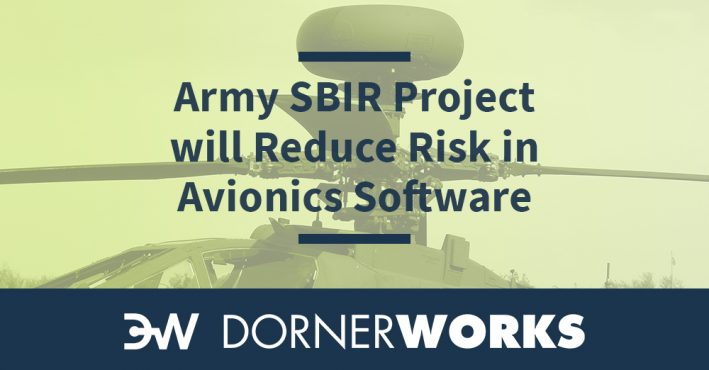
Imagine a world where you needed more than one toaster.
Sourdough, rye, pumpernickel, honey wheat, and every other recipe each require their own appliance. Not a single slice is allowed to share a slot reserved for some other flavor, else the whole operation goes up in flames.
A delicious scene, to be fair, but inefficient. And, depending on how often you eat hot sandwiches, expensive.
 Developing technology for avionics applications isn’t all that different. Traditional avionics software components are not able to plug-and-play with each other right out of the box. Companies that want to innovate in aerospace have struggled to collaborate closely with vendors throughout the development process, failing to identify project-killing bugs, component integration challenges, and obstacles to portability.
Developing technology for avionics applications isn’t all that different. Traditional avionics software components are not able to plug-and-play with each other right out of the box. Companies that want to innovate in aerospace have struggled to collaborate closely with vendors throughout the development process, failing to identify project-killing bugs, component integration challenges, and obstacles to portability.
You would ordinarily have to test each flavor of software for certification, something that is often put off until late in the development process, then resulting in exorbitant cert fees. Once again, if the design is found unsuitable, the bread was toasted in the wrong toaster, months or even years of your work will have been wasted.
Obviously, we don’t live in a world where every different flavor of bread requires its own toaster. You can get the job done with just one. Now, through a Small Business Innovation Research (SBIR) contract with the US Army, DornerWorks, supported by PEO Aviation, has proposed a cost-effective avionics development infrastructure that could help developers collaborate and integrate their work just as easily, building innovative and portable solutions.
 The proof-of-concept “Virtual Model-Based Systems Engineering Platform to Enable Agile Development of Secure FACE Software” developed by DornerWorks enables complex embedded Avionics software projects to use Agile practices and continuous integration to reduce risk, detect problems earlier in the development process, and lower schedule costs. A description of the platform was recently published by the US Army.
The proof-of-concept “Virtual Model-Based Systems Engineering Platform to Enable Agile Development of Secure FACE Software” developed by DornerWorks enables complex embedded Avionics software projects to use Agile practices and continuous integration to reduce risk, detect problems earlier in the development process, and lower schedule costs. A description of the platform was recently published by the US Army.
This is the “universal toaster” avionics developers may one day use to build their products together, helping them work seamlessly, whether requiring alignment to Common Criteria (CC) Evaluation Assurance Level 7 certification for security or DO-178C Level A certification for safety. It will give them the benefit of practical software reusability, even in the face of stringent security, safety, and performance requirements, full confidence that their products meet certification standards, and full confidence they work.
This proposed platform reduces risk in four ways:
DornerWorks is excited to have completed the first steps towards building this platform with the US Army, and is looking forward to the new capabilities and future development it will bring companies in aerospace and defense.
Schedule a meeting with DornerWorks today to discuss how a VMBSE platform could enhance your development process.